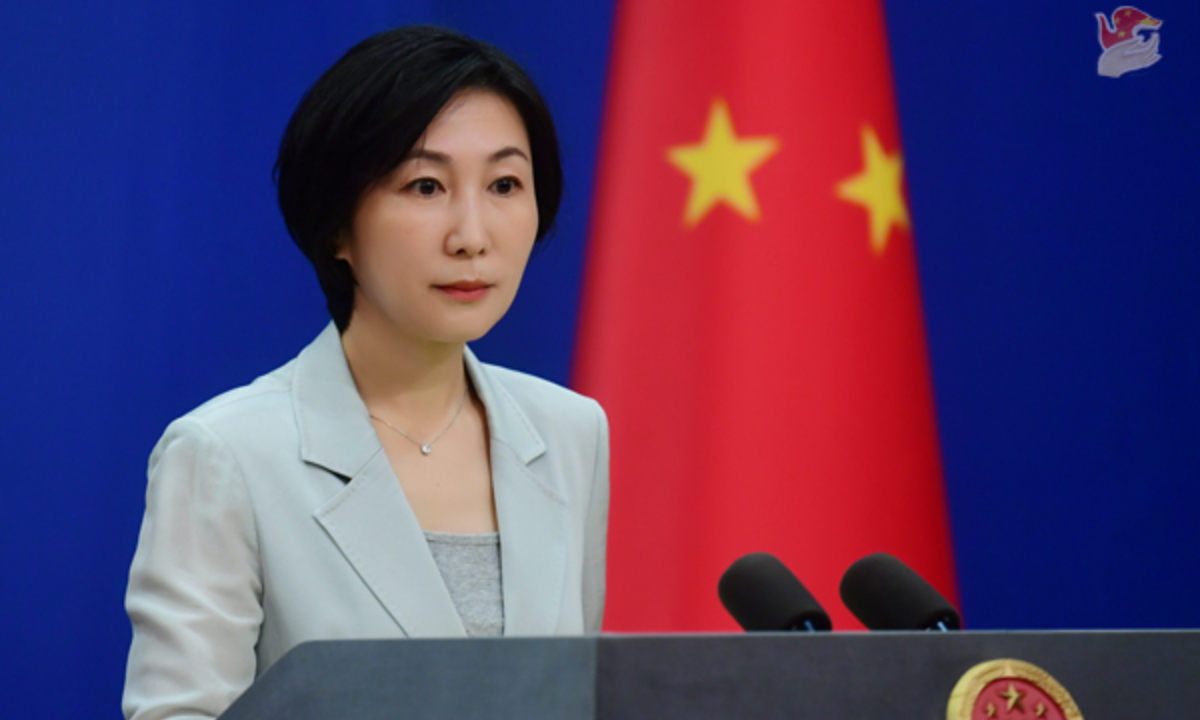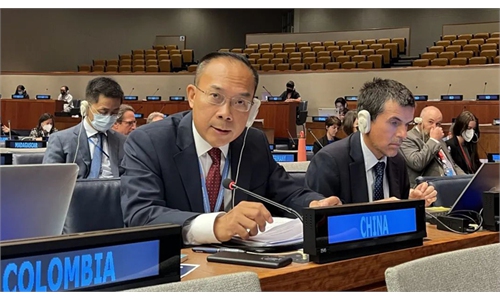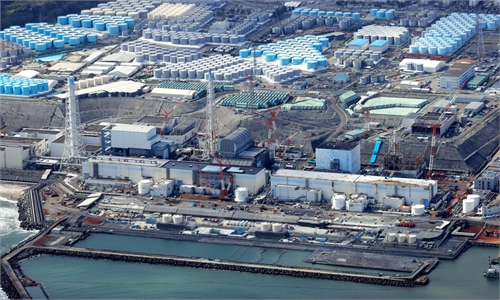
Foreign Ministry Spokesperson Mao Ning Photo: Ministry of Foreign Affairs
Chinese Foreign Ministry on Monday once again called on Japan to stop its dubious and irresponsible plan of dumping Fukushima nuclear-contaminated water into the sea, as the radioactive substance in the nuclear-contaminated water, although it had already been treated through a filtration system, was once tested to be two times higher than the discharge standard.
According to Kyodo News, the Tokyo Electric Power Company (TEPCO), which is in charge of construction of the facility to be used for releasing the nuclear-contaminated water, said on Thursday that the company found the level of radioactive substance Strontium 90 as high as three times of Japan's national standard, even though the samples on July 28 had been treated through a filtration system called ALPS (Advanced Liquid Processing System).
The report came after the repeated claim of both the Japanese government and TEPCO that nuclear-contaminated water is "safe" to be dumped into the ocean because it would go through the multi-nuclide removal system ALPS and radioactive substances such as Strontium 90 and Carbon 14 that cause genetic mutation in the ecosystem can be reduced to a "safe" level.
"I've noticed related media report and this proves the exact rationality of international community's concern over the reliability of Japan's data, the efficacy of the treatment system, and the uncertainty of environmental impact," said Chinese Foreign Ministry spokesperson Mao Ning on Monday's regular press conference.
The sea is not Japan's dustbin, nor the Pacific Ocean its sewer, Mao emphasized, saying the Japanese government is extremely irresponsible for forcing through its disposal plan and the construction of underwater pipeline to dump the nuclear-contaminated water from Fukushima nuclear power plant into the ocean given doubts in the plan and unsettled international concerns.
Mao once again urges Japan to deal with the nuclear-contaminated water in a scientific, open, transparent and safe manner on the basis of negotiations with neighboring countries and international institutions.
Despite concerns and opposition from within and neighboring countries including South Korea and China, TEPCO started construction of facility on August 4 for dumping the nuclear-contaminated water after Japan's nuclear regulator approved its discharge plan in late July.
Global Times


